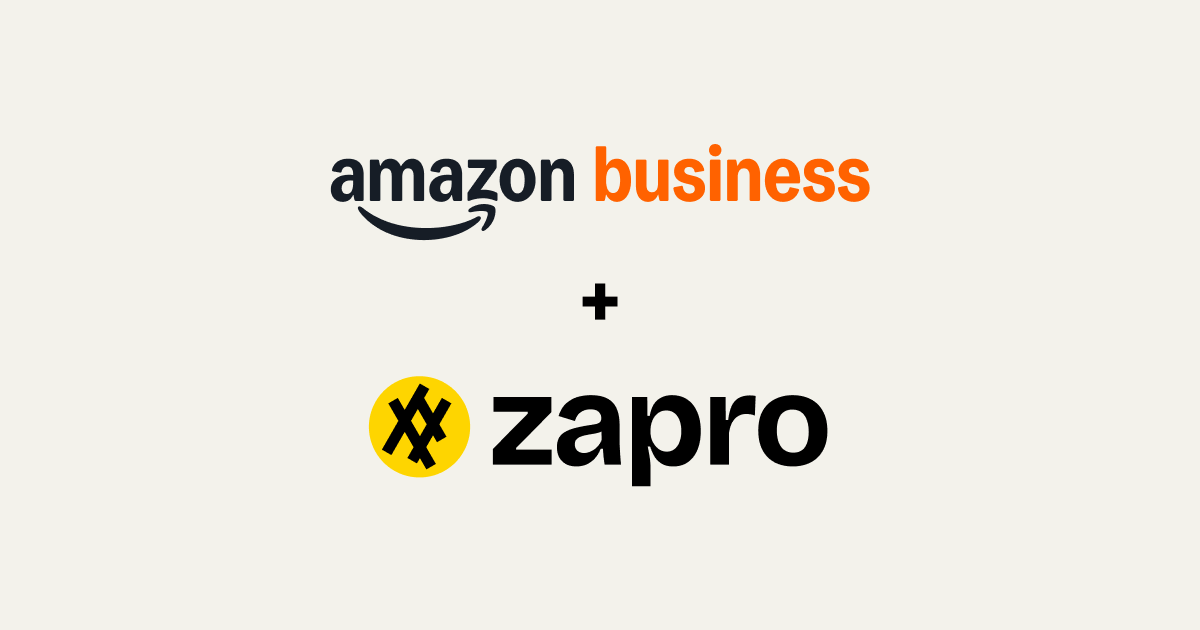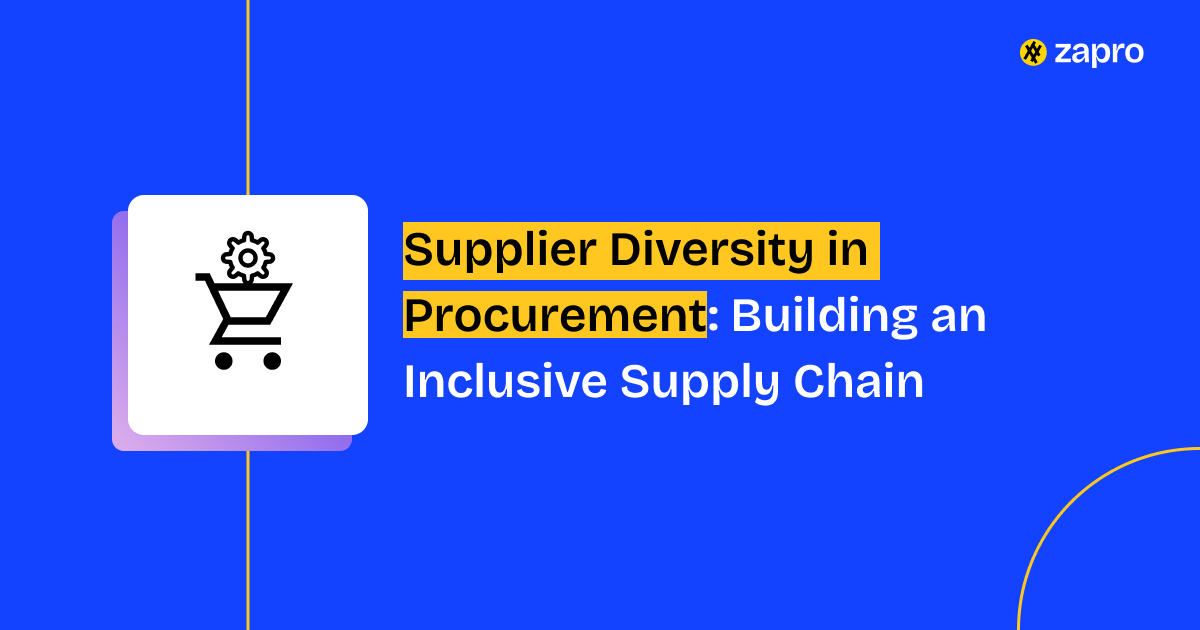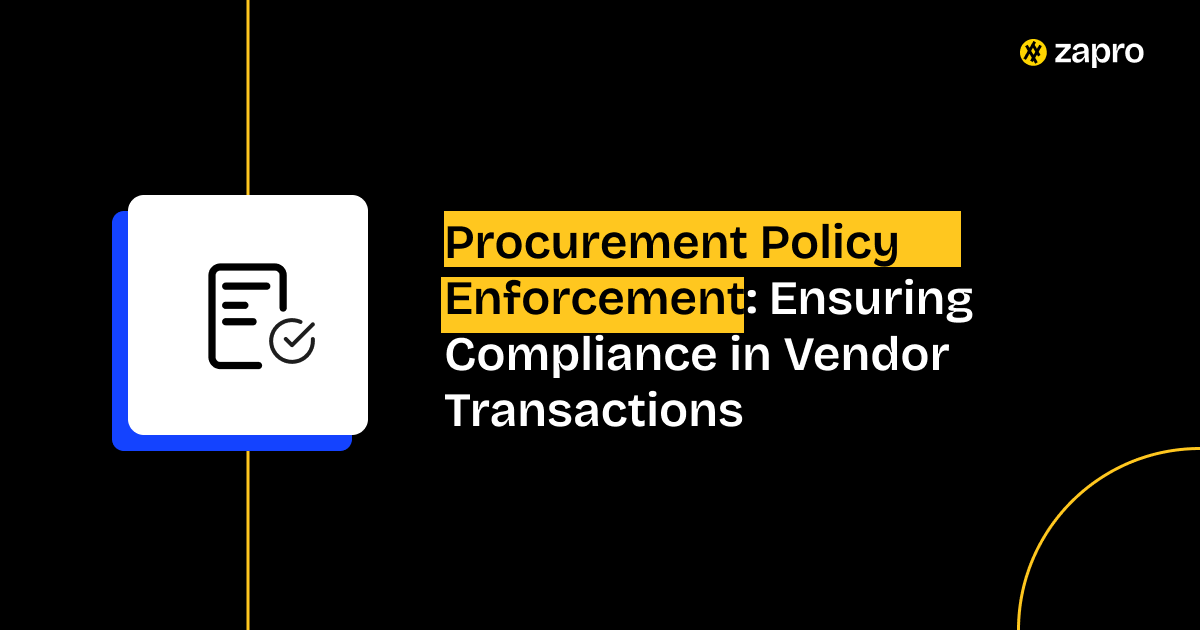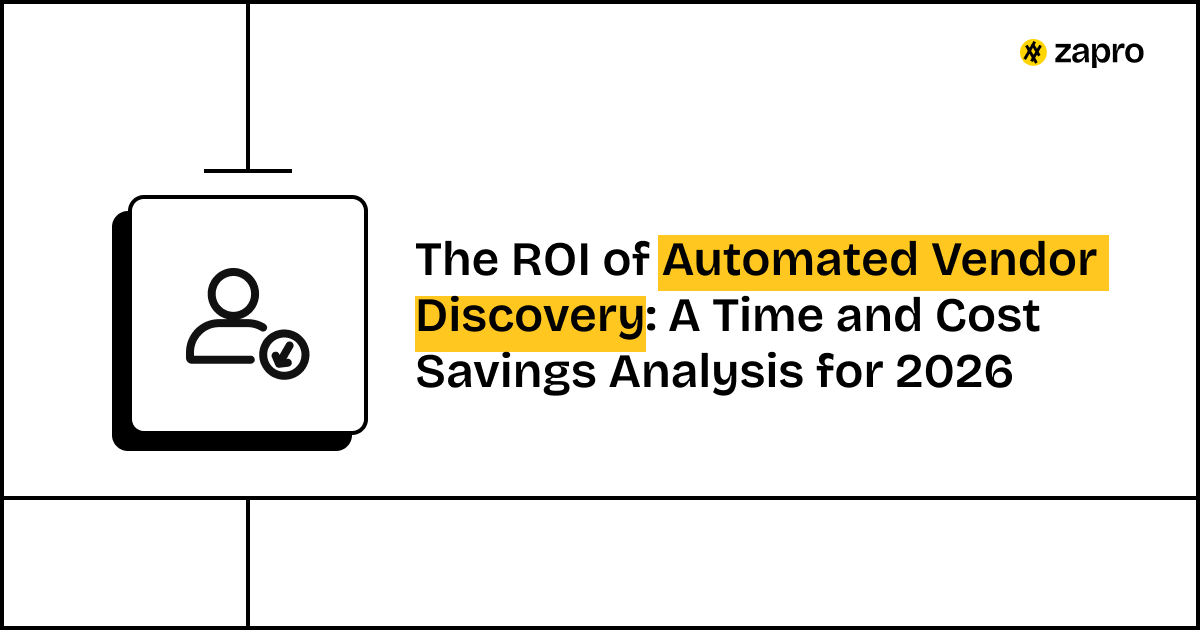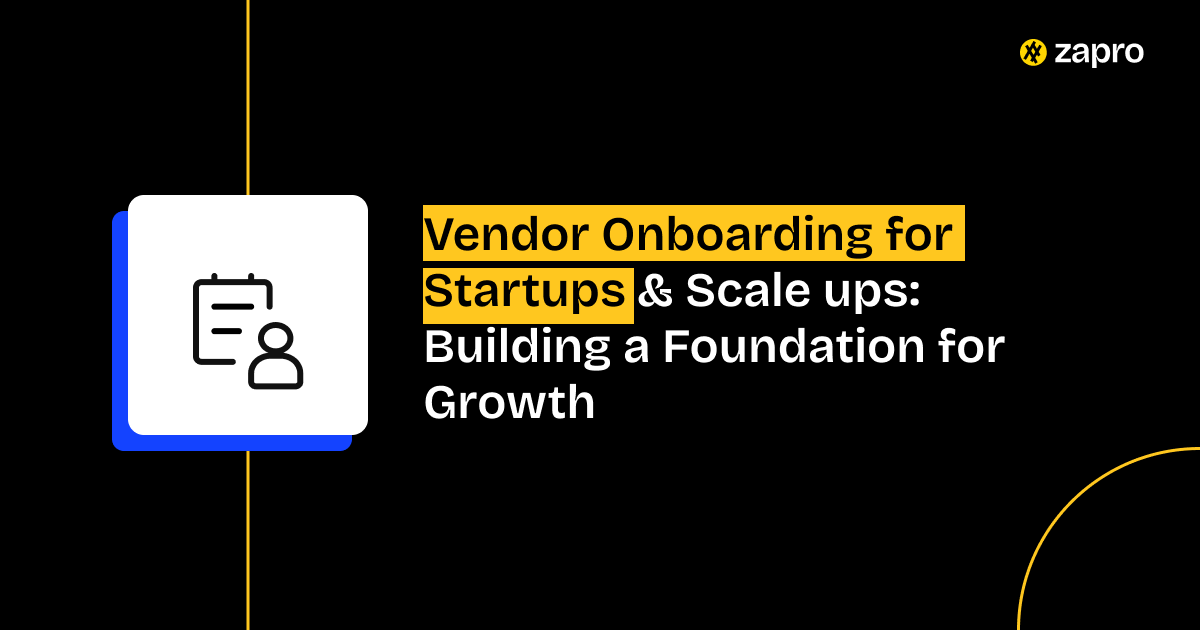Beyond compliance: the strategic imperative of supplier diversity
Supplier diversity has evolved from being a basic compliance requirement into a strategic business initiative which enhances procurement operations and drives innovation and business expansion. Companies that work with suppliers from diverse backgrounds including minority-owned and women-owned and veteran-owned and LGBTQ+-owned businesses create an inclusive supply chain which delivers both business stability and market competitiveness.
The transition of diversity from a moral duty to a business benefit has occurred. Organizations that practice inclusive sourcing achieve market diversity representation while gaining creative benefits and minimizing their dependence on limited vendor networks.
Companies now focus on supplier diversity implementation because they understand its strategic value. This article examines the essential advantages of inclusive supply chain development which generates business value through innovation and community development.
What is supplier diversity and why does it matter?
The practice of supplier diversity needs your organization to meticulously include businesses run by underrepresented groups during their procurement activities. See the goal here is simple; supplier diversity programs should extend beyond diversity representation because they create opportunities for businesses to participate in the market.
The supply chain benefits from diverse suppliers because they introduce innovative solutions and specialized knowledge and local market understanding which big vendors tend to miss. The practice of vendor management diversity enables organizations to achieve better market competition while improving their agility and expanding their economic reach while fulfilling their social responsibility targets.
The business case: Innovation, Resilience, and Market growth
It is proven that companies that actually maintain active vendor diversity programs have achieved very much superior results than their competitors when it comes to innovation and adaptability.
- The implementation of diverse suppliers results in creative solutions because these suppliers introduce fresh perspectives to the decision-making process.
- Organizations that work with multiple suppliers can minimize supply chain disruptions and decrease their risk exposure through this approach.
- Diverse supplier programs enable businesses to access new customer bases while building their brand reputation through market expansion.
- The practice of working with diverse suppliers generates economic benefits which support local economic development and strengthen organizational equity initiatives.
The practice of supplier diversity in procurement delivers both ethical and financial advantages to businesses.
Learn more about vendor management software.

40% of procurement leaders report that identifying qualified suppliers (either from a quality or volume capability perspective) is their biggest challenge.
– Gartner
Key benefits of an inclusive supply chain
An inclusive supply chain requires more than just diversity targets for its implementation. The procurement system enables organizations to achieve simultaneous growth and innovation and social impact development. Organizations that actively work with suppliers from diverse backgrounds create better communities while building their internal strength.
1. Driving innovation and competitive advantage
The diverse supplier base delivers innovative solutions and specialized knowledge which forces organizations to rethink their standard methods. The distinctive viewpoints of diverse suppliers result in innovative product concepts and enhanced operational methods and expanded business prospects.
Organizations that embrace diversity in their procurement operations develop better adaptability and customer-oriented capabilities which create a competitive edge. The procurement process becomes more resilient and dynamic when diverse voices participate because innovation emerges from this collective involvement.
2. Strengthening communities and economic impact
The inclusion of diverse suppliers in supply chains creates economic benefits which extend beyond business advantages to support entire communities. The partnership between businesses and small and minority-owned suppliers creates economic growth through job creation and equitable business development.
The positive effects of this practice create enduring regional connections which support sustainable development. Organizations that make supplier diversity a priority in procurement software activities create actual economic transformation while fulfilling their ESG and corporate responsibility targets.
3. Enhancing brand reputation and customer loyalty
Modern consumers together with stakeholders choose to support businesses which demonstrate genuine social commitment. Businesses that showcase their vendor diversity initiatives gain social responsibility status and demonstrate their commitment to innovation.
Supplier diversity initiatives help businesses develop positive corporate reputations which attract socially aware customers and build stronger relationships with stakeholders. Businesses that demonstrate procurement inclusion through their practices develop customer loyalty as well as investor and employee dedication.
4. Mitigating supply chain risk through diverse sources
Diverse supplier networks help organizations protect their supply chains from disruptions because they draw resources from various ownership types and geographical areas.
A supplier network with diverse ownership types and geographical locations helps organizations stay flexible during emergencies and maintain operations when their main supply routes become unavailable. The practice of supplier diversity helps organizations build supply chain resilience which proves essential for managing today’s unpredictable supply chain risks.
Companies must establish a systematic method to achieve supplier diversity sustainability. They should establish specific targets and find suitable partners and develop performance assessment systems to achieve their supplier diversity goals. The following section demonstrates how to establish an effective supplier diversity program. starting from the beginning.
Scale Your Supplier Diversity Program Effortlessly.

Building a robust supplier diversity program
The process of turning supplier diversity into actual results needs organized systems to function. A successful program requires organizations to establish specific definitions and open qualification procedures and performance indicators for measurement. A well-designed supplier diversity program integrates fully into procurement strategy instead of operating as a separate initiative.
1. Defining diversity categories (minority-owned, women-owned, etc.)
The establishment of supplier diversity programs requires organizations to establish specific criteria which determine diverse supplier eligibility. The program includes four main categories which are:
• Minority-owned businesses (MBE): Must have at least 51% ownership by members from recognized minority groups.
• Women-owned businesses (WBE): Must have women as the majority owners who receive certification from local or national organizations.
• Veteran-owned and service-disabled veteran-owned businesses (VOB/SDVOB): Operate under ownership of veterans or service-disabled veterans.
• LGBTQ+-owned businesses: The NGLCC provides certification for LGBTQ+-owned businesses to access diverse supplier programs.
• Small or disadvantaged businesses: Qualify for participation based on their revenue levels and number of employees.
The establishment of specific categories helps organizations follow regulatory requirements and create uniform reporting systems. The identification process enables teams to determine which suppliers meet the requirements for diverse supplier programs.
2. Identifying and vetting diverse suppliers
The process of selecting appropriate business partners represents the most significant obstacle organizations face. The National Minority Supplier Development Council (NMSDC) and Women’s Business Enterprise National Council (WBENC) along with local chambers of commerce operate as certification databases for diverse suppliers.
The evaluation process for suppliers requires the same level of scrutiny as any other business partner by assessing their financial stability and operational capacity and quality standards and previous performance results. The program aims to achieve diversity goals through supplier selection without sacrificing operational performance.
Digital procurement platforms enable organizations to create automated supplier vetting systems which establish standardized evaluation methods for diverse vendors.
The system enables organizations to maintain standardized evaluation procedures which provide equal opportunities for diverse suppliers to participate.
Leveraging technology to support supplier diversity
The process of handling supplier diversity becomes impractical when organizations try to manage it through manual methods at large scales. The current state of procurement systems requires organizations to achieve complete visibility while implementing automated systems that deliver precise data. The implementation of technology solutions allows organizations to find diverse suppliers while checking their certifications and tracking their spending performance by category.
Digital tools enable organizations to handle administrative tasks while providing complete visibility into their diversity programs and ensuring all stakeholders remain accountable. The system enables procurement leaders to use data for their decisions while showing concrete results from their efforts.
1. Supplier registration and certification management
Organizations struggle to confirm that their suppliers maintain diversity certification status. The registration process for suppliers becomes more efficient through digital portals which enable vendors to submit their diversity certification documents.
The system uses automated workflows to check supplier certifications from NMSDC and WBENC and to detect certification expirations which trigger renewal processes for maintaining ongoing compliance. The system removes the need for manual communication between procurement staff and suppliers while maintaining an active database of verified suppliers.
A properly designed digital registration system prevents organizations from missing qualified suppliers while maintaining reliable supplier information that stakeholders can trust.
2. Tracking diverse spend and reporting tools
Organizations need complete visibility to achieve their accountability goals. Modern analytics tools enable procurement teams to monitor diverse spending activities in real-time across different categories and locations and business areas.
The reporting features of E-procurement Software and Vendor Management Tools enable users to access instant performance data through their dashboards.
• The system tracks all diversity-related spending activities and their distribution across different supplier categories.
• The system monitors how diversity spending patterns change from one period to the next.
• The system tracks how suppliers distribute their business activities across different categories.
• The system monitors diversity performance against established organizational targets.
Organizations can demonstrate their diversity achievements through transparent reporting to their leadership teams and investors and ESG committees.
The system should use automated features to detect underperforming categories and monitor spending discrepancies. The system enables teams to identify problems early so they can prevent diversity targets from becoming unachievable.
3. Integration with sourcing and procurement platforms
The implementation of supplier diversity programs requires direct integration with standard sourcing and procurement operations. The combination of supplier performance data with diversity information enables organizations to select vendors who bring both strategic value and inclusive practices to their operations.
The integration of Supplier Management Software with E-procurement Software and sourcing systems enables automatic display of supplier diversity information during vendor evaluation and RFx development and purchase authorization processes.
The integration of diversity programs with procurement operations creates an environment where inclusivity becomes an automatic part of all business decisions. Organizations can evaluate diverse suppliers through their capabilities and certification status which results in fair and data-driven procurement choices.
Best practices for engaging and mentoring diverse suppliers
The process of building an inclusive supply chain begins with supplier onboarding but requires ongoing support to achieve success. The practice of supplier diversity requires ongoing supplier engagement and mentorship and equal business opportunities for success. The procurement team must actively support this ecosystem by providing diverse vendors with both entry points and growth opportunities.
Organizations should implement these strategies to enhance their supplier engagement practices:
1. Creating a culture of inclusivity in procurement
Supplier diversity success depends on cultural acceptance rather than following rules. The practice of inclusion should be integrated into all procurement choices and organizational policies and business interactions.
The development of this culture requires:
• Leadership advocacy: Executive support for diversity initiatives creates organizational-wide dedication to diversity programs.
• The procurement team needs training about inclusive sourcing practices and unconscious bias detection methods.
• Organizations should maintain open communication about their progress and obstacles to build trust with their internal staff and external business partners.
• Organizations should present diversity as well as celebrate their diverse workforce because it generates innovative solutions which drive business success.
Organizations that practice inclusivity in their daily procurement activities will develop better sourcing methods and build stronger supplier relationships which leads to business stability.
2. Foster two-way collaboration, not one-way contracts
The organization should transition from basic transactional relationships to develop more comprehensive partnerships. The procurement process should include diverse suppliers from the beginning through brainstorming sessions and pilot programs and product development collaborations.
The development of collaborative partnerships between organizations leads to better results through enhanced mutual understanding and creative solutions.
3. Offer mentoring and capacity-building programs
Small and minority-owned businesses face challenges when accessing advanced procurement systems and scaling resources because of their limited experience. The organization should create mentorship programs which pair diverse suppliers with prime suppliers and category managers who teach them about compliance and financial management and digital system usage.
The program should include scheduled meetings and training sessions and team-based learning activities to help suppliers match your procurement requirements.
4. Simplify onboarding and procurement access
The registration process along with documentation requirements and qualification procedures should be easy to access through digital platforms and step-by-step guides. The organization should provide procurement guidelines through accessible formats to all staff members.
The disclosure of evaluation standards helps diverse suppliers feel more confident when they participate in competitions.
5. Recognize and reward performance
Organizations should use internal publications and supplier conferences and yearly awards to showcase their top-performing diverse suppliers. The recognition programs help boost supplier morale while demonstrating your organization’s dedication to fair sourcing practices.
Your evaluation framework should include supplier performance metrics to assess their quality delivery and innovative capabilities.
6. Ensure equitable payment practices
The practice of paying suppliers on time represents a fundamental method to support diverse business operations. The financial stability of small businesses depends on quick cash flow management because extended payment delays create significant financial challenges.
The organization should use automated payment term management systems to achieve both operational efficiency and payment predictability. The implementation of early payment programs together with dynamic discounting options helps build stronger relationships with suppliers while improving their financial stability.
7. Build cross-functional accountability
The responsibility for supplier diversity management extends beyond procurement personnel to include all organizational departments. The organization should unite finance and legal and operations and sustainability departments to develop diversity metrics which will become part of their shared performance targets.
Leadership support for inclusivity through performance tracking will establish diversity as an essential business value. The organization should perform diversity assessments during sourcing processes and display these metrics on leadership performance dashboards to achieve complete transparency.
8. Leverage community partnerships and supplier networks
The organization should work with local business organizations and supplier groups and diversity support organizations. The partnerships help organizations access verified diverse suppliers while offering essential training and business networking opportunities.
Your organization will receive updates about new business standards and certification requirements through its participation in these networks.
9. Use data and feedback loops to improve engagement
The organization should track supplier contentment levels and their participation rates and their diversity spending performance. The analysis of data helps organizations detect areas where supplier participation remains low in specific categories.
The combination of supplier feedback with data analysis helps organizations discover problems which standard data collection methods cannot detect. The organization should use data collection methods to track supplier feedback which will help them enhance their supplier engagement programs.
The process of measurement and dialogue creates an ongoing cycle which enables you to develop vendor diversity programs that will succeed in the long run.
With strong leadership, data-driven tools, and a culture of inclusivity, supplier diversity becomes more than a procurement initiative, it becomes a growth engine.
Let’s see how Zapro.ai enables this transformation by making diversity measurable, scalable, and sustainable across your entire supply chain.
How Zapro.ai powers supplier diversity and inclusion
Zapro.ai serves as the foundation which enables organizations to achieve supplier diversity and inclusion goals.
The development of an inclusive supply chain needs more than positive intentions because it requires organizations to maintain constant visibility and structured systems for accountability. The solution exists through Zapro.ai.
Zapro.ai provides procurement teams with supplier diversity operational capabilities through its automated system which unifies data and delivers instant performance metrics. The platform allows businesses to track diverse supplier involvement throughout their entire procurement workflow.
Zapro.ai enables organizations to transform supplier diversity into a strategic business benefit through its capabilities:
• The platform allows users to store complete supplier information which includes certifications and categories and demographic data in one centralized location.
• The system maintains continuous audit readiness through its automated system which sends alerts about certification renewal needs and compliance status updates.
• The system allows users to monitor their diversity spending activities through visual reports which display departmental and geographical and category-specific data.
• The system enables users to link diversity data with their complete procurement and payment systems through seamless integration.
• The system provides users with supplier performance tracking through scorecards and vendor ecosystem engagement trend monitoring.
Zapro.ai enables organizations to establish procurement functions which deliver both equity and future-readiness through its transparent and measurable supplier diversity solution.
Conclusion:
Organizations should adopt inclusive procurement because it delivers both social responsibility and operational success. Organizations that dedicate resources to supplier diversity procurement activities obtain access to fresh business concepts and enhanced supplier relationships and enduring market expansion.
Zapro.ai provides users with both the necessary platform and analytical tools to execute their supplier diversity initiatives.
Your organization can establish an inclusive supply chain network which generates innovative solutions and sustainable growth through our supply chain development program.
Discover how Zapro.ai can help you build and scale your supplier diversity program; book a personalized demo today.

Every Supplier Relationship is an Opportunity to Drive Change.
Zapro helps you discover diverse suppliers, track certifications, and measure diversity impact. Build an inclusive supply chain that drives results
Don’t miss our weekly updates
We’ll email you 1-3 times per week—and never share your information.

 Healthcare
Healthcare Financial Services
Financial Services Technology
Technology Venture Capitalist
Venture Capitalist Chief Procurement Officer
Chief Procurement Officer Chief Financial Officer
Chief Financial Officer